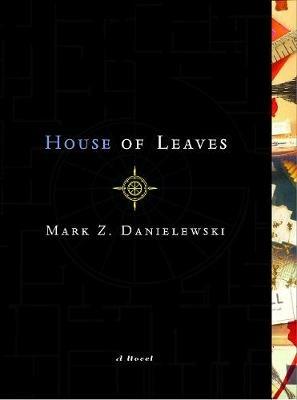Héctor Tobar talks 'Our Migrant Souls,' his book on Latino identity
It’s everywhere from Netflix to the nightly news, from the Instagram feeds of the red-pilled to the bookshelves of the “woke.” Conservative propagandists aren’t alone in reducing Latinos to killers and cartel bosses. Liberal scribes traffic in such tropes too. But in their stories, Latinos aren’t always sinners. They can also be “spicy,” suffering or saintly characters.
No wonder so many people are silent or even celebratory in the face of the mass expulsion and exploitation of the most marginalized among us. Why should they care about the one-dimensional figures they imagine us to be?
The book’s subtitle, “A Meditation on Race and the Meanings and Myths of ‘Latino,’” reflects Tobar’s commitment to gray areas and contradictions. He writes: “An African heritage. Your indigeneity. Your Europeanness. You are everything — and you are the very specific places your parents came from.”
By reading the essays of those young Americans, who re-create their parents’ love stories and their own messy secrets, Tobar learned a lot about what “Latino” can mean. He observes: “Our humanity and our complexity exist outside broadcast and printed culture, rarely as alive and full as I see in your writing.”
“Our Migrant Souls” also illuminates deeper truths about the United States, an empire that has displaced millions of people and then trapped them here. Tobar spoke with The Times over the phone, in a conversation edited for clarity and length, about how Latinos are not only America’s future but also the essence of “a country conflicted over its own mestizo identity.” OUR MIGRANT SOULS by Hector Tobar
(MCD)
You started this book in 2020. What inspired you to create this at that time?
I was teaching students and hearing their stories, and it was during the George Floyd uprisings. We were having this national conversation about race, and it seemed to me that Latino identity and the space Latino people occupy in the race ideas of this country wasn’t a subject of national discussion … To me, it’s the defining race question of the 21st century.
Why did you frame the book as a conversation with young Latinos?
I was inspired, like Ta-Nehisi Coates was, by James Baldwin’s “The Fire Next Time” [rhetorically structured as a letter to his nephew]. In many ways the book is a tribute to Baldwin. The fact that we as Latinos can stand up for ourselves, that we can begin to understand the race scheme of this country, is due in large measure to the work of African American activists, thinkers and writers.
So I’d read Baldwin, but I didn’t really feel that I wanted to address my own children because they’ve heard enough from me already. And my children are privileged in relation to most young Latino people in this country. I wanted to speak to those strivers that I met at UC Irvine. Those young people who have so much going on intellectually, who are very curious, and also hurt and angry. I wanted to share what they’ve taught me.
Many Latinos have a love-hate relationship with the terms that define us. What’s your biggest problem with the word “Latino”?
The biggest problem is that it centralizes Europeanness. Latin America was a phrase championed by, among others, the French intellectuals attempting to justify the French intervention in Mexico. It’s this attempt to tell people south of the Rio Grande that they have common cause with the French and Spanish elite over the Anglo American elite.
At the same time, it’s a term that’s used by marketers but also activists. The origin of “Latino,” the way we use it and the way it began to be used in the L.A. Times, one of the first media organizations to use the term, was as an expression of an alliance between people of many nationalities. It’s a name for a group of people who do have a shared experience — of mixing, of journeys, of surviving empire.
You write: “‘Latino’ and ‘Latinx’ are synonyms for ‘mixed.’” Is there a risk that this conception of Latino identity as mestizo replicates mainstream Latino erasure of Black or Indigenous people who don’t identify as mixed?
Absolutely. I think any generalization about a large group of people is going to create lies. And erasures … We need to find new ways of being in solidarity.
In your chapter “Ashes,” the book’s most powerful and haunting section, you write persuasively about the militarized border as a state killing machine that targets Latinos, drawing an implicit parallel to the machinery of the Holocaust. Your framing didn’t feel exaggerated to me as someone who has had repeated encounters with human remains at the border, which has become a mass grave where bodies are incinerated by nature. You describe the rerouting of migrants into the hostile desert as a “perfect American slaughter for the media age.” Why did you decide to focus an entire chapter on this comparison? Is there a reason you didn’t state it explicitly?
I didn’t want to be accused of saying that there was a moral equivalency because that’s not what I’m saying. … I’m saying that both of those crimes exist on the same continuum of human history. That they’re both expressions of the idea of race cleansing and race purity and race defense as instruments of nation building. The Nazis employed industrial methods to murder millions of people in the name of defending the German race against the Jewish race. [Border militarization] is this horrific crime and serves the same purpose as any violent act. It intimidates an entire people. The stories of what happens at the border reach into the hearts and minds of Latino families and shape the way they make decisions. They’re related incidents in the history of mankind.
You devote another chapter to the lies told about Latinos, whether in liberal Hollywood or on conservative Fox News. Are they linked?
Both our infantilization in the liberal media and our depiction as monsters in the right-wing media are symptoms of our voicelessness in American media. The root of that is a stereotype about Latino people, which is that we’re not intellectuals. We’re not and can never be. Not that there’s a great intelligentsia in this country.
Did you write this book to rebel against that idea?
It’s born from frustration as an artist. I just love the complexity and the textures of the storytelling of my students. Once you give them the idea that a complex father is more interesting to read about than a saintly father or a saintly mom, then you get a lot of interesting insights into the human condition. The thing that really bothers me is the didactic quality of so much of our [well-known] art … it’s what Roberto Lovato calls the folklórico-industrial complex. We’re selling this colorful — the equivalent of the abuelita on the label of the Abuelita chocolate. But there’s so much exciting work, some of which I mention in my book — great artists and photographers. I do believe we’re at the beginning of a Latino Renaissance like the Harlem Renaissance. I’ve been saying that for about 10 or 15 years, but now more than ever, I really feel it happening. source



